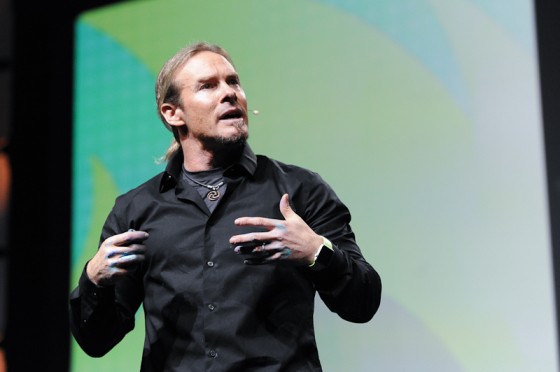 NEW ORLEANS—The RIMS 2015 Annual Conference & Exhibition kicked off with a burst of creativity at the opening General Session as bestselling author and graffiti artist Erik Wahl encouraged attendees to reawaken their imaginations as they look for opportunities to improve their business.
NEW ORLEANS—The RIMS 2015 Annual Conference & Exhibition kicked off with a burst of creativity at the opening General Session as bestselling author and graffiti artist Erik Wahl encouraged attendees to reawaken their imaginations as they look for opportunities to improve their business.
More than just a typical lecture, Wahl demonstrated the value of creativity by painting portraits of icons like U2’s Bono and Steve Jobs as he made the case that breaking through complacency can lead to new ideas. Wahl pointed that once upon a time, we all considered ourselves artists, so much so that the scent of Crayola crayons remains one of the top 20 most recognizable scents to America adults, according to a Yale University study. The smell of crayons has even been found to reduce blood pressure by as much as 10 points, Wahl said. So with that in mind, he advised the audience to “take a drag of a Crayola” whenever they felt stressed. The real lesson, though, was that creativity is in all of us, no matter how analytical our adult selves have become.
The key is to break through the fear that prevents us from moving forward and taking advantage of opportunities. Sometimes it only requires us to look at the world with a new perspective. “If you’re not trying new things,” Wahl asked, “are you pushing hard enough?” As he completed his third portrait—this time of Albert Einstein, who once said “Imagination is more important than knowledge,”—it was clear that success really can be considered an art. All we need to do is get out our own set of crayons.


